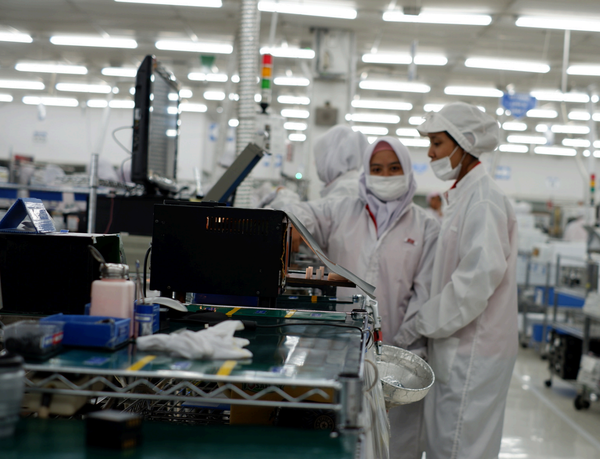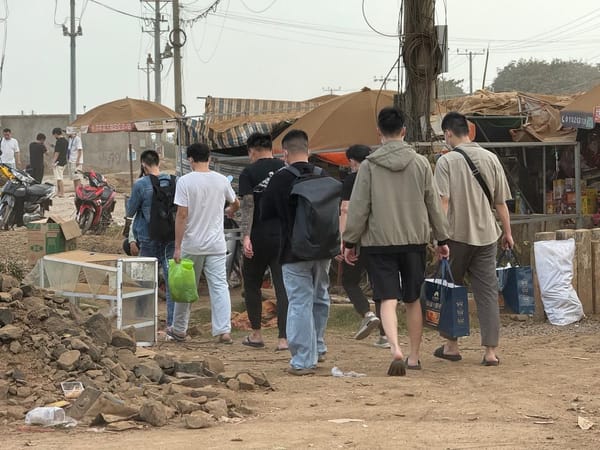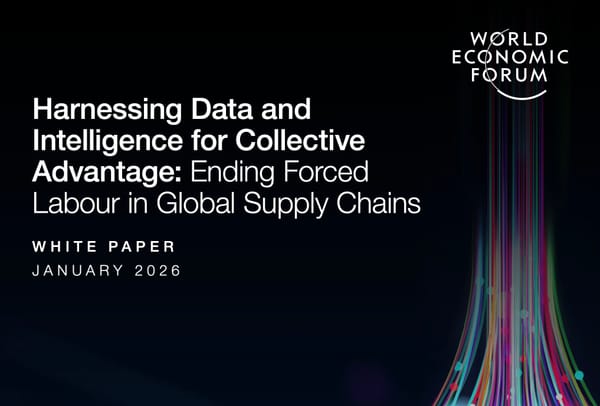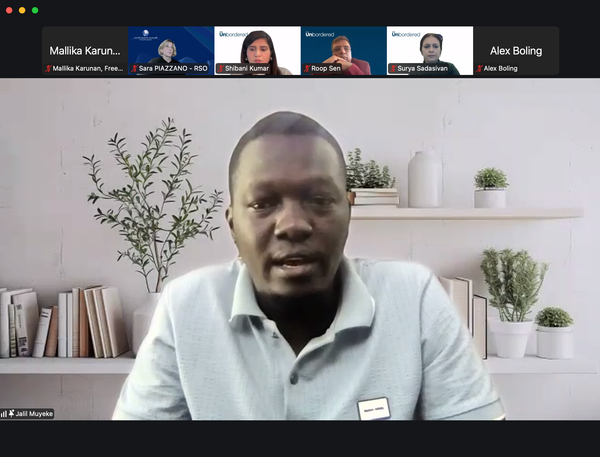Local partners’ insights help shape global research priorities
Freedom Collaborative gathers inputs from CSOs to inform global research efforts, a report identifies forced labour cases among Starbucks suppliers, and MEPs urge the EU to end support for Libyan security forces amid human rights abuses.
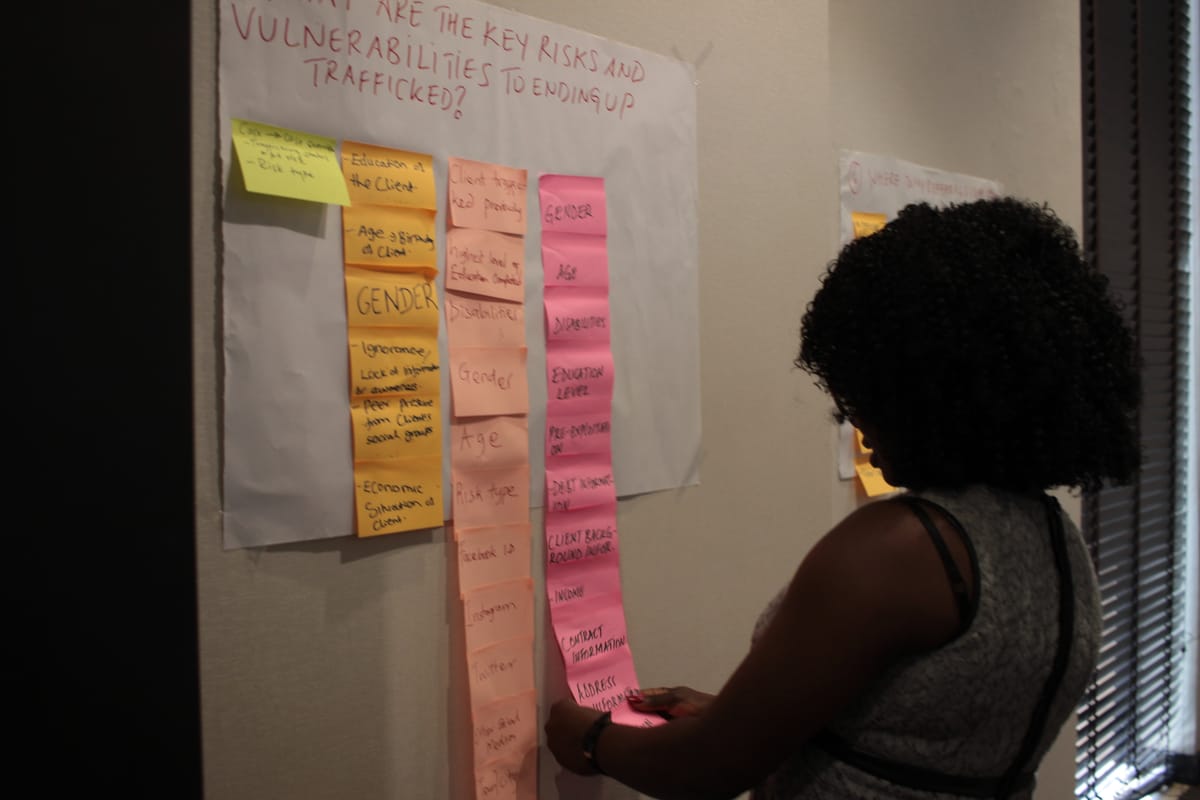
Freedom Collaborative has contributed insights gathered from our partners in East Africa and Asia to enrich the consultative process led by the International Labour Organization (ILO) and Innovations for Poverty Action (IPA) in developing Global Research Priorities for Combating Human Trafficking and Forced Labour. In East Africa, this included extensive input from members of the East and Horn of Africa Anti-Trafficking (EHAAT) Network, a growing regional coalition of frontline organizations supported by the European Union and Germany through the Better Migration Management Programme. During the consultations, civil society partners and survivor leaders identified key research priorities and offered targeted recommendations and action-oriented questions to help build consensus, close knowledge gaps, and inform more impactful, evidence-based programs and policies.
These context-specific research priorities underscore the importance of grounding global responses in civil society perspectives and show how locally informed insights can strengthen international efforts. The varied inputs demonstrate frontline organizations’ deep understanding of how structural factors interact to drive trafficking and abuse within their communities, and how these dynamics are evolving under the pressures of climate stress and digital exploitation. Together, their perspectives offer valuable guidance on where systems can improve and which practical, community-based solutions hold the greatest potential for lasting change.
In East Africa, participants focused on reducing vulnerability through efforts that address poverty, displacement, and inequality, noting that awareness raising in isolation has little impact in contexts where a lack of resources, climate-related pressures, and weak governance drive families and children into risky situations. They pointed to under-investigated issues such as internal child trafficking, forced marriage, and the effects of climate and environmental shocks as major gaps in prevention research. They also highlighted the need for sustained attention to survivors’ long-term trajectories, emphasizing comprehensive reintegration support and ongoing monitoring of re-trafficking risks. Participants called for greater recognition and support of survivor-led organizations, noting that their leadership and lived experience are essential to shaping effective protection and reintegration strategies. Strengthening cross-border coordination, evidence-sharing, and policy harmonization among East African states were also identified as critical areas for progress.
Across Asia, members highlighted persistent challenges in demonstrating the effectiveness of prevention measures, as well as structural drivers of exploitation that remain under-examined but require policy-level reforms, including citizenship, land rights, and access to education. They also drew attention to region-specific factors such as statelessness in Thailand, caste and tribal exclusion in India, and the intersections between disaster displacement, climate stress, and digital exploitation – all of which heighten vulnerability and merit deeper study. Partners called for more in-depth research and documentation of community-based care models, economic recovery pathways, and mental-health approaches tailored for survivors. They emphasized the need for local alternatives to institutional shelters and for greater inclusion of male survivors and other underrepresented groups. Partners repeatedly noted that most anti-trafficking interventions in Asia lack rigorous evaluation and urged greater investment in impact assessments, comparative research, and cross-country learning to strengthen evidence-based policymaking.
Despite regional differences, partners in both East Africa and Asia identified common challenges: limited locally grounded data, justice systems that struggle to provide effective remedies, insufficient survivor inclusion, and a need for stronger regional collaboration. Both groups called for a global research agenda that is evidence-driven, context-specific, and designed to foster cooperation while improving the quality of research across regions. They emphasized survivor-centered, participatory approaches and the integration of protection, labour, and social systems.
Participants from both regions also stressed the importance of working across sectors. Trafficking cannot be understood in isolation from broader social challenges, and interventions developed in areas such as child marriage prevention, the response to gender-based violence, child protection, housing, and mental health offer valuable opportunities for adaptation. Practitioners across Asia also noted that efforts in education, labour rights, disaster response, and youth engagement hold significant yet largely untapped potential to reduce vulnerability to trafficking.
Here’s a roundup of other noteworthy news and initiatives:
Thousands of trafficked workers have escaped Myanmar’s KK Park compound in Myawaddy, with partners on the ground confirming a mass exodus from one of Southeast Asia’s largest cyber-scam hubs. Cyber Scam Monitor says the junta’s disputed “raid” comes amid years of profiteering by junta-aligned militias, raising fears operations will simply disperse to other compounds across the region.
In this detailed blogpost, cybersecurity service Infoblox Threat Intel details its investigation into “Vault Viper”, a triad-linked online ecosystem centered on the Baoying Group (BBIN), which powers illegal online gambling while pushing a high-risk “privacy” browser and running expansive DNS infrastructure. Developed with UNODC, the findings tie BBIN’s stack to money laundering, cyber-enabled fraud, and trafficking networks, showing how online gambling now functions as core cybercrime infrastructure in Southeast Asia.
A new Repórter Brasil investigation finds that a Brazilian coffee farm where 20 workers were rescued from slave-like conditions in 2021 remained certified under Starbucks’ C.A.F.E. Practices program years later, even after its owner was placed on the government’s “Dirty List” for forced labour. The report also documents additional 2025 slave-labour cases among members of the Cooxupé cooperative, one of Starbucks’ largest Brazilian suppliers, exposing persistent failures in ethical sourcing and the limits of social auditing to prevent exploitation in global coffee supply chains.
An Iranian asylum seeker deported to France under the UK’s new “one in, one out” migration deal has re-entered the UK by small boat, saying he was exploited by traffickers and feared for his life in France. Rights groups report growing evidence of violence and forced labour among migrants in northern France, raising questions about the safety and sustainability of the returns scheme as Channel crossings reach record levels.
Nearly 40 Members of the European Parliament have called on the European Commission to end all financial and operational support to Libyan security forces, citing escalating violence against humanitarian and migrant vessels. The lawmakers warn that continued EU cooperation with Libyan entities implicated in human rights abuses undermines the bloc’s credibility and risks fueling further instability in the region.
You are invited to two expert EHAAT webinars on 30 October exploring evidence-based strategies to address trafficking and unsafe migration in the East and Horn of Africa. The first, “Leveraging Evidence to Build Partnerships and Prevent Exploitation” (11:00am–12:30pm EAT), focuses on private-sector collaboration, followed by a deep dive into the EHAAT Regional Routes Mapping Report (2:00–3:30pm EAT), which you can join directly via Zoom, presenting key findings, data insights, and policy implications.
As partners respond to the crisis at the Myanmar–Thailand border following the mass escape from the KK Park cyber-scam compound, around 550 African nationals remain stranded in Thailand awaiting repatriation. Those wishing to help can donate directly to Acts of Mercy International under the “Thailand Trafficking” sub-fund to support food and basic assistance for those affected.

